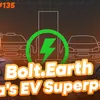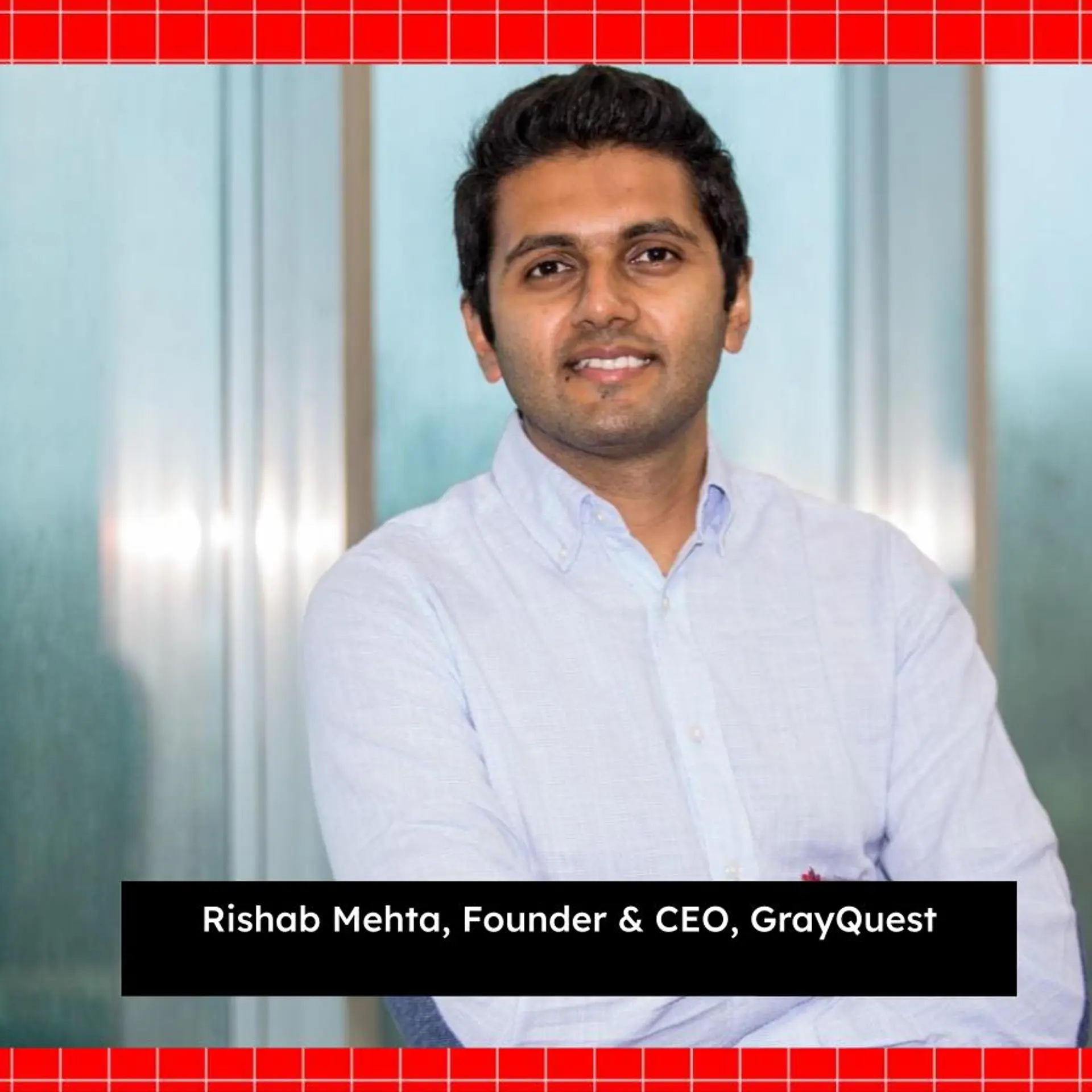Bolt.Earth's Jyotiranjan Harichandan on business strategy and the value of identifying customer pain-points
In this episode of Prime Ventures Partners Podcast, Jyotiranjan Harichandan, Co-founder of Bolt.Earth, shares how a phone call to his investor during COVID-19 helped them survive tumultuous global economic crisis and build India’s largest EV charging infrastructure.
In this podcast episode, Sanjay Swamy, one of the first institutional investors in , embarks on a reminiscent journey with Jyotiranjan Harichandan, Co-founder of Bolt.Earth, as we uncover the story of a burgeoning startup that’s supercharging the EV revolution in India.
The conversation gives you an insight into the early days of the company (then REVOS), their stint with Chinese EV manufacturers, and the struggles of building a hardware device business during the peak of the pandemic.
The discussion centers on entrepreneurial spirit, business strategy, team-building, and the value of identifying customer pain-points to solve. Jyoti’s experiences are highly valuable to an aspiring entrepreneur as it features stories that shed light on grit, adaptability, innovation, and persistence that represent the true life of a founder beyond the fame.
Early days
Interestingly, Bolt.Earth co-founders Jyoti and Mohit Yadav, who were classmates at BITS Pilani, started REVOS to build software solutions for ‘Original Equipment Manufacturers’(OEMs) in China.
This was pre-COVID, and Jyoti quotes this experience to be extremely valuable in enabling Bolt.Earth’s growth as China is the market leader in EV manufacturing and distribution globally.
With the onset of the pandemic, Bolt.Earth (REVOS then) was in an extremely difficult situation as its engineers were stuck in China, there was lack of business continuity, insufficient funds, and an uncertain future.
Jyoti mentions how their engineers flew to over four countries in panic mode before they reached India safely. Meanwhile, he made a phone call to his potential early-stage investor.
First cheque
Sanjay recalls, “We were still evaluating the company, we had not yet signed a term sheet and all of a sudden COVID hit and he called me one day nervously. At that time, we said, well, what's the minimum amount of money you're going to need to make it through the next six-nine months? And very studiously, he and Mohit came back with a number, we put 10% more as a buffer and invested and said, ‘Ok, let's keep this company going because they had something unique, but it was still far from being a business’.”
Jyoti laughs and tells us how that forced them into identifying the core problems that had to be solved for the Indian EV ecosystem. The problem statement that they were addressing was, “Ola and Ather are building EVs, but customers had no real solution to charging.” The team studied the market, customers, technology, and launched the world’s cheapest charger at ₹3,000.
Growth and scalability
In a world with no-contact, an early team of 25 people worked day and night from an apartment in HSR Layout, Bengaluru, to ship out the first 100 chargers. Jyoti remembers it to be the most difficult period of the journey so far.
After achieving a scale of 70 odd people, the team had to scale rapidly to meet the surge in demand as Bolt.Earth was the first mover in the nascent EV charging industry in 2021. As they were building a full-stack solution for EV charging infrastructure, he says they had to quickly hire across technology, sales, deployment, customer service, operations providing end-to-end solutions.
Once they hit 10,000 chargers in ~1.5 years of product launch, Jyoti calls it their critical mass and how that changed the growth trajectory of the company. From a distribution lens, they installed chargers in over 2,500+ apartment complexes across the country. To ensure excellent operations, he speaks highly about their 24x7 customer service capability for the users currently.
In an impressive turnaround, he says they’ve acquired 65-70% of the market share for two and three-wheeler EV charging.
With a confident smile, Jyoti proudly says, “Bolt’s goal is to enable every parking lot to be a charging point.”
Next 12-18 months for EV & Bolt.Earth
“In the next one to two years, you would find that most of us would be owning EVs. If a customer is buying a two-wheeler, then definitely it will be an EV. If someone is buying a four-wheeler, it will be a serious consideration. We would see charging points potentially in all the places where we spend more than two, three hours every day, whether it is your apartment, office, or a mall, and this change is inevitable,” says Jyoti.
The success of Bolt.Earth illustrates the potential for smart, software driven solutions to foster a more connected and efficient EV ecosystem. The evolution of customer service, the advent of IoT in EV charging, and the increasing involvement of real estate players in creating charging-friendly environments all point to an electrifying future on the horizon.
Bolt.Earth is a full-stack EV charging solution ‘Made in India’ for the world making EVs smart, safe, and connected.
Timestamps:
00:00 - Early days of Bolt.Earth
03:00 - Selling software to Chinese EV manufacturers
05:40 - COVID & Bolt's 1st VC cheque from Prime Venture Partners
09:00 – Bolt’s team, technology, and product
11:45 - Growth + scaling Bolt.Earth
15:00 - Smart EVs for two- and three-wheelers in India
18:00 - Bolt.Earth OS - Android for EVs
22:00 - Next 12-18 months for EV & Bolt.Earth
(This is part 2 of the interview with Bolt.Earth)
Edited by Megha Reddy







![[YS Exclusive] ‘Had to let a meaningful number of people go for the company’s growth’: Freshworks CEO Dennis Woodside](https://images.yourstory.com/cs/2/fe056c90507811eea8de27f99b086345/CopyofNewPPTTemplates62-1736395865849.jpg?mode=crop&crop=faces&ar=1%3A1&format=auto&w=1920&q=75)
